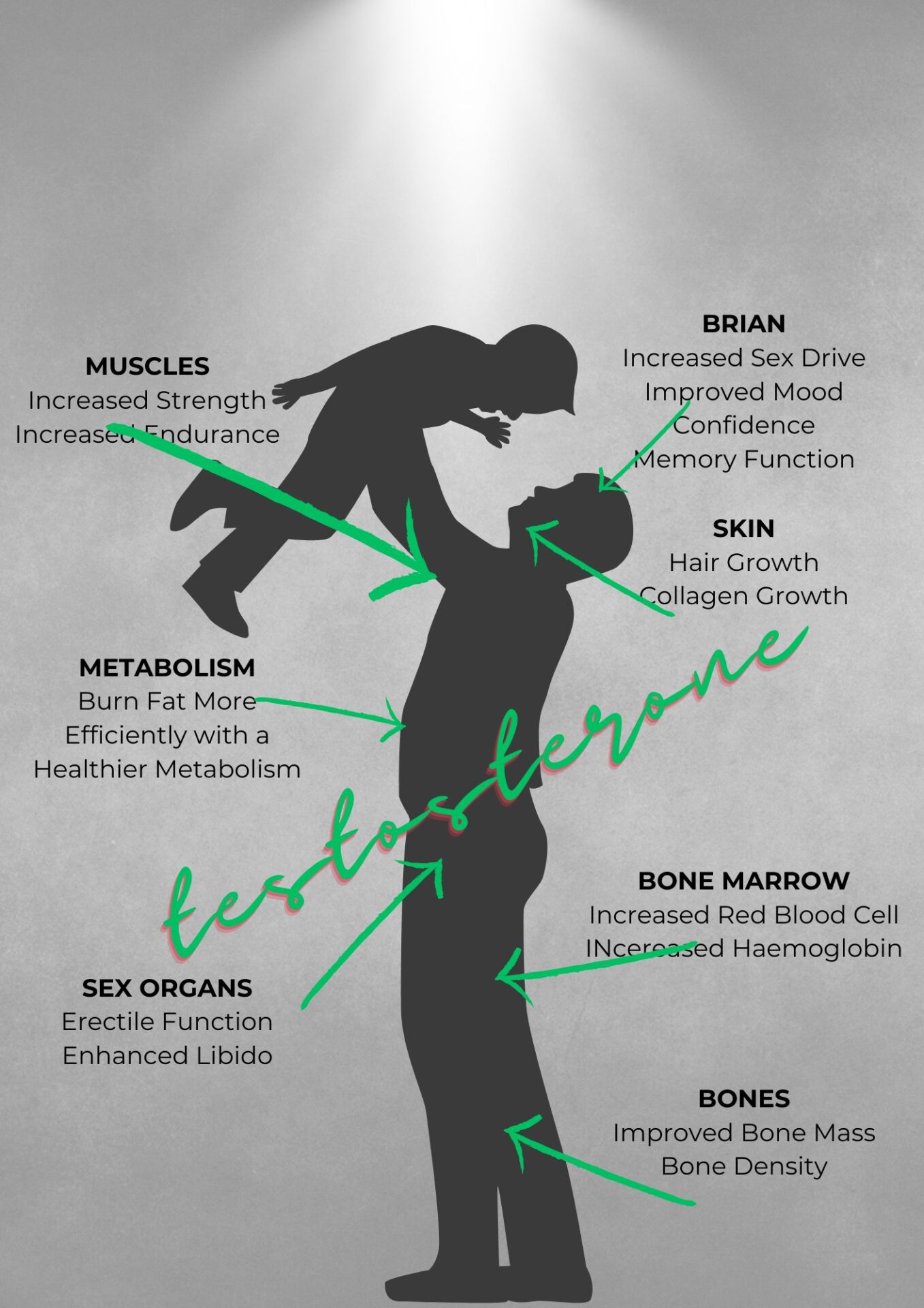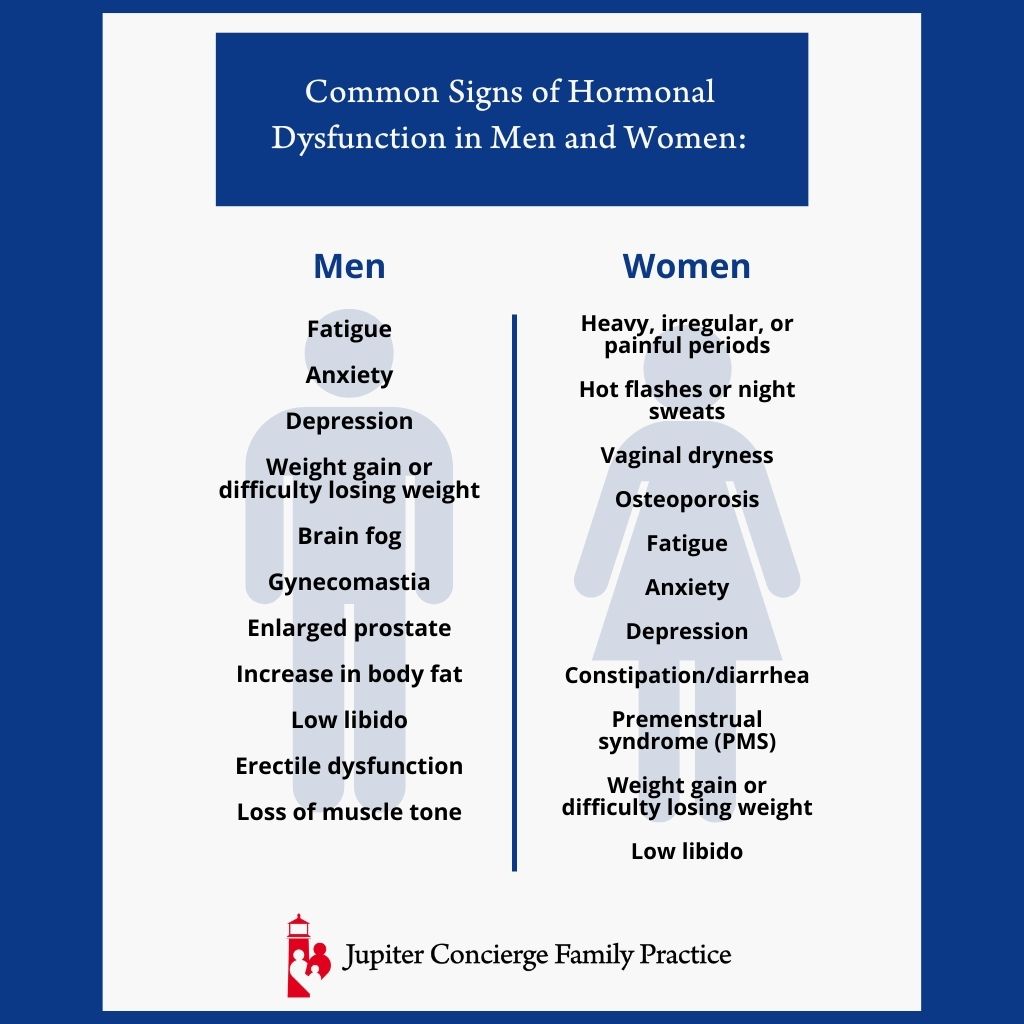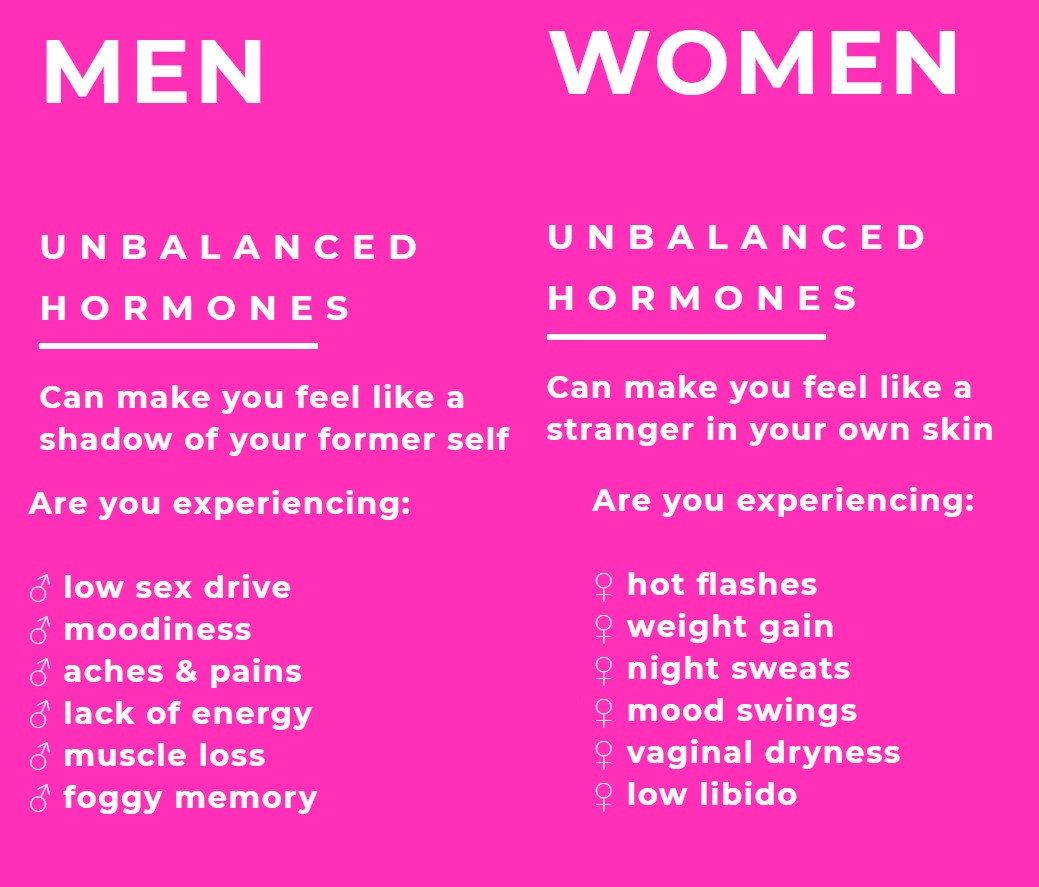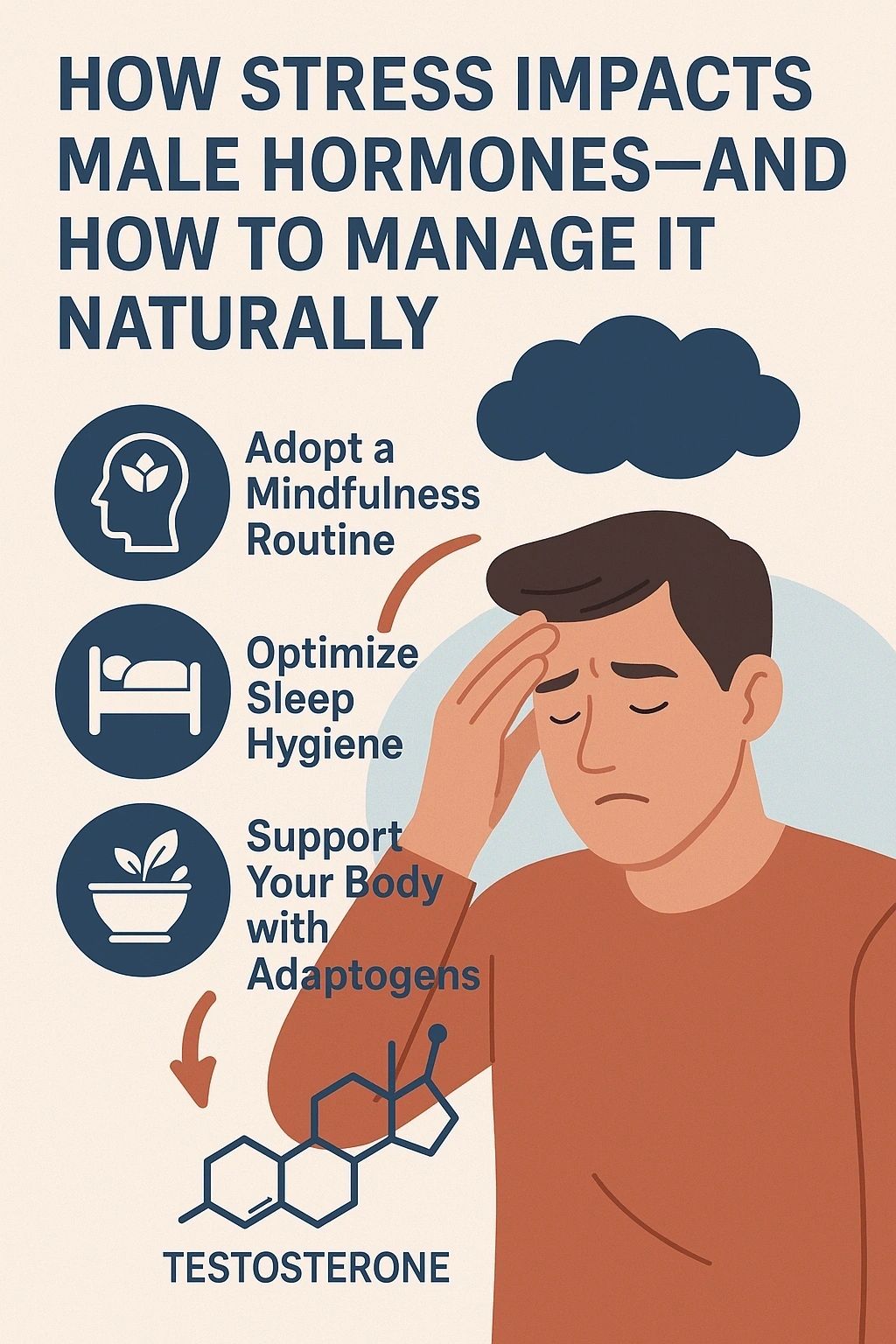In today’s fast-paced world, achieving optimal hormonal health goes beyond just focusing on testosterone levels. Modern men need to understand the intricate balance of various hormones that impact their overall well-being. By exploring factors like estrogen, cortisol, and thyroid health, you can uncover pathways to enhance vitality and resilience. Embracing a holistic approach through nutrition, exercise, and mindfulness will empower you to take control of your hormonal health and foster a more fulfilling life. Let’s dive deeper into the essential elements that can transform your health journey.
Understanding Hormones: The Basics Every Modern Man Should Know
Hormones are chemical messengers that play a crucial role in regulating various functions in the body. For modern men, understanding hormones and their impact on overall health is vital for achieving optimal hormonal health. Here’s a breakdown of key hormone categories every man should know:
- Steroid Hormones:
- Testosterone: Essential for muscle mass, mood, and libido.
- Cortisol: Known as the stress hormone, it impacts energy levels and immune response.
- Peptide Hormones:
- Insulin: Regulates blood sugar levels, crucial for energy and metabolism.
- Growth Hormone: Supports growth, cell repair, and overall health.
- Thyroid Hormones:
- T3 and T4: Control metabolism, energy levels, and cognitive function.
Understanding these hormones enhances awareness of how they interact. For example, high cortisol levels can lower testosterone, impacting mood and energy. Recognizing these connections empowers modern men to take proactive measures in balancing hormones.
To optimize hormonal health, consider these foundational practices:
- Stay Informed: Regularly educate yourself about hormonal changes.
- Monitor Symptoms: Pay attention to mood swings, fatigue, or changes in weight.
- Consult Professionals: Engaging with healthcare specialists can provide personalized insights.
Ultimately, a solid understanding of hormones fosters a proactive approach, allowing modern men to enhance their overall vitality and well-being.

The Role of Testosterone: More than Just a Number
Testosterone plays a pivotal role in hormonal health, but its significance extends beyond mere numbers on a lab report. While many associate testosterone solely with muscle mass or libido, it truly influences various aspects of a man’s well-being. Here’s how:
- Mood Regulation: Optimal testosterone levels contribute to a stable mood and cognitive function. Lower levels can lead to irritability, depression, or fatigue.
- Bone Density: Testosterone supports bone strength. Insufficient levels may increase the risk of fractures due to weakened bones.
- Fat Distribution: Healthy testosterone levels help regulate body fat. Low testosterone can lead to increased body fat, affecting overall physical appearance and self-esteem.
- Muscle Mass: While muscle growth is often the first association, testosterone’s role in muscle maintenance is equally essential for overall strength and endurance as we age.
| Factor | Low Testosterone Effects | Healthy Testosterone Effects |
|---|---|---|
| Mood | Irritability, Fatigue | Stability, Positive Outlook |
| Bone Health | Increased Fragility | Stronger Bones |
| Body Composition | Higher Body Fat | Lean Muscle Mass |
Understanding testosterone’s multi-faceted role in hormonal health empowers modern men to approach their wellness holistically. By prioritizing testosterone health, you not only enhance physical attributes but also support emotional and mental wellness. Ultimately, it’s about embracing a vibrant lifestyle. So, take charge and explore ways to maintain those vital levels!
The Importance of Estrogen in Men’s Health
When we think about hormones, testosterone usually steals the spotlight, but estrogen plays an equally crucial role in hormonal health, especially for men. While often perceived as a female hormone, estrogen is vital for male physiology, affecting various bodily functions.
Why is Estrogen Important?
- Bone Health: Estrogen helps maintain bone density and strength, reducing the risk of fractures. Low levels may lead to osteoporosis.
- Cardiovascular Function: It contributes to cardiovascular health by regulating cholesterol levels and promoting good blood circulation.
- Mood Regulation: Estrogen influences neurotransmitter pathways, which can help stabilize mood and reduce anxiety.
Optimal Levels Matter
Maintaining a healthy balance of estrogen is essential:
| Hormone Level | Effects |
|---|---|
| Low Estrogen | Increased risk of osteoporosis, mood swings, fatigue |
| High Estrogen | Weight gain, increased body fat, and potential fertility issues |
Tips for Supporting Estrogen Balance
To foster hormonal health, consider the following lifestyle changes:
- Diet: Incorporate whole foods, fiber, and healthy fats while limiting processed sugars and carbs.
- Exercise: Engage in regular physical activity to promote overall hormonal balance, including estrogen levels.
- Limit Alcohol: Excessive drinking can disrupt hormonal balance; moderation is key.
By understanding and nurturing estrogen’s role, you empower your overall hormonal health. So, keep an eye on those estrogen levels – your body will thank you!
Balancing Cortisol: Managing Stress for Better Hormonal Health
Cortisol, often referred to as the “stress hormone,” plays a vital role in maintaining hormonal health. When stress levels rise, cortisol production increases, paving the way for various health issues. Thus, managing stress is crucial for achieving balance in our hormonal systems. Here are effective strategies to help you lower cortisol and promote overall hormonal health:
- Mindfulness and Meditation: Engage in mindfulness practices or meditation to help calm the mind. This can significantly reduce cortisol levels and improve your mental clarity.
- Regular Exercise: Incorporate physical activity into your daily routine. Exercise not only releases “feel-good” hormones but also helps in moderating cortisol levels.
- Healthy Nutrition: Focus on a balanced diet rich in whole foods. Incorporate omega-3 fatty acids (found in fish), magnesium (found in leafy greens), and antioxidants to combat stress-induced inflammation.
- Adequate Sleep: Prioritize quality sleep. Aim for 7-9 hours each night to restore your body’s natural hormone balance.
- Social Connections: Spend time with friends and family. Positive social interactions can boost your mood and help mitigate stress.
| Strategy | Impact on Cortisol Levels |
|---|---|
| Mindfulness/Meditation | Reduces cortisol significantly |
| Regular Exercise | Moderate cortisol response |
| Healthy Nutrition | Supports overall hormonal health |
| Adequate Sleep | Restores balance |
| Social Connections | Lowers stress effectively |
By implementing these strategies, you can effectively manage your cortisol levels, enhancing your hormonal health and paving the way for a healthier, more balanced life. Stay proactive and take charge of your wellness!

Thyroid Health: The Silent Player in Hormonal Balance
When discussing hormonal health, many people overlook the thyroid gland, despite its crucial role. Nestled in your neck, the thyroid regulates metabolism, energy levels, and overall hormonal balance. Deficiencies or imbalances can lead to significant changes in both physical and mental health.
Key Functions of the Thyroid:
- Metabolism Regulation: The thyroid controls how quickly you burn calories, affecting weight management.
- Energy Production: A well-functioning thyroid ensures high energy levels and stamina throughout the day.
- Mood Stabilization: Thyroid hormones play a vital role in maintaining mental health, impacting mood and cognitive functions.
Thyroid Imbalance Symptoms:
- Fatigue and weakness
- Weight gain or loss
- Mood swings and irritability
- Hair loss or thinning
- Changes in heart rate
Comparison: Hyperthyroidism vs. Hypothyroidism
| Condition | Symptoms | Effects on Hormonal Health |
|---|---|---|
| Hyperthyroidism | Weight loss, anxiety, high heart rate | Can lead to muscle loss and increased cortisol |
| Hypothyroidism | Weight gain, fatigue, depression | May cause low testosterone levels and fluid retention |
To maintain optimal hormonal health, incorporate foods rich in iodine, selenium, and zinc into your diet. Regular check-ups with a healthcare provider will help monitor thyroid function, ensuring it remains the silent powerhouse behind your hormonal balance. Embrace a proactive approach to thyroid health and enhance your overall vitality!
Exploring Insulin Sensitivity: A Key to Vitality
When it comes to hormonal health, understanding insulin sensitivity is crucial. Insulin sensitivity determines how effectively your body responds to insulin, a hormone that regulates blood sugar levels. Here’s why it matters for every modern man:
- Vitality Boost: High insulin sensitivity means your body efficiently uses glucose for energy, enhancing physical performance and mental clarity.
- Weight Management: Improved insulin sensitivity benefits metabolism, making it easier to maintain a healthy weight.
- Disease Prevention: Low sensitivity can lead to insulin resistance, increasing the risk of type 2 diabetes and other metabolic disorders.
Tips to Improve Insulin Sensitivity
- Prioritize Physical Activity: Engage in both cardiovascular and strength training exercises. Aim for at least 150 minutes of moderate exercise each week.
- Nurture a Balanced Diet:
- Emphasize low-glycemic foods like whole grains, legumes, and non-starchy vegetables.
- Incorporate healthy fats from sources like avocados, nuts, and olive oil.
- Limit refined carbohydrates and added sugars.
- Manage Stress: Chronic stress raises cortisol levels, negatively impacting insulin sensitivity. Techniques like meditation, yoga, or deep breathing can help.
- Get Quality Sleep: Aim for 7-9 hours of restorative sleep each night as lack of sleep can lead to insulin resistance.
By focusing on these lifestyle changes, you can enhance your hormonal health and overall vitality. Remember, small changes lead to significant results!
The Impact of Nutrition on Hormones: Foods for Optimal Health
Nutrition plays a vital role in maintaining hormonal health. The foods you choose can significantly influence hormone production and balance. By incorporating specific nutrient-dense foods into your diet, you can foster a healthier hormonal environment. Here’s how:
Key Foods for Hormonal Health
- Healthy Fats:
- Avocados: Promote healthy estrogen levels.
- Olive Oil: Supports testosterone production.
- Lean Proteins:
- Chicken and Fish: Rich in amino acids essential for hormone synthesis.
- Legumes: Help regulate insulin levels, maintaining energy balance.
- Fiber-Rich Foods:
- Whole Grains: Stabilize blood sugar, which supports overall hormonal health.
- Fruits and Vegetables: Crucial for detoxifying excess hormones.
- Fermented Foods:
- Yogurt and Kimchi: Enhance gut health, indirectly benefiting hormone balance.
Hormonal Health Comparison Table
| Food Type | Hormonal Benefit | Key Nutrient |
|---|---|---|
| Healthy Fats | Supports testosterone and estrogen | Omega-3 fatty acids |
| Lean Proteins | Aids in hormone synthesis | Amino acids |
| Fiber-Rich Foods | Regulates insulin and blood sugar | Dietary fiber |
| Fermented Foods | Enhances gut health | Probiotics |
Incorporate these foods into your diet to enhance your hormonal health. Remember, balance is key. Combined with regular exercise and sufficient sleep, these dietary choices can pave the way to a healthier, more vibrant life. Modify your meals today and reap the long-term benefits of optimal hormonal health!

Exercise and Hormones: Building a Fit Body and Mind
Exercise plays a pivotal role in maintaining optimal hormonal health. Engaging in regular physical activity not only enhances physical fitness but also significantly influences hormone production and balance. Here’s how exercise impacts key hormones:
- Testosterone: Strength training boosts testosterone levels, leading to increased muscle mass and improved mood.
- Estrogen: Moderate exercise helps regulate estrogen levels, which is crucial for overall male health.
- Cortisol: While chronic stress raises cortisol, consistent physical activity can lower stress levels and thus, cortisol production.
Types of Exercise and Their Hormonal Benefits
| Type of Exercise | Benefits | Hormones Affected |
|---|---|---|
| Weight Training | Increases muscle mass and testosterone | Testosterone, growth hormone |
| Cardio | Improves mood and reduces cortisol levels | Cortisol, serotonin |
| Yoga and Stretching | Enhances relaxation and combats stress | Cortisol, adrenaline |
Incorporating Exercise into Your Routine:
- Find what you enjoy: Whether it’s lifting weights, cycling, or yoga, passion fuels commitment.
- Consistency is Key: Aim for at least 150 minutes of moderate exercise weekly.
- Mix it Up: Combine strength training, cardio, and flexibility work for comprehensive benefits.
By prioritizing exercise, you not only sculpt a fit body but also cultivate sound hormonal health. Remember, a healthy mind thrives in a healthy body!
Sleep: The Unsung Hero of Hormonal Health
When it comes to hormonal health, sleep often takes a backseat. Yet, quality sleep plays a critical role in regulating hormones that affect everything from mood to metabolism. Here’s why prioritizing sleep can help you maintain a balanced hormonal profile:
- Hormone Regulation: During deep sleep, your body produces vital hormones like testosterone and growth hormone. Inadequate sleep disrupts these processes, leading to decreased energy levels and a decline in muscle mass.
- Cortisol Control: Chronic lack of sleep raises cortisol levels, the stress hormone, which can contribute to weight gain and anxiety. By ensuring you get enough sleep, you can keep cortisol levels in check.
- Insulin Sensitivity: Poor sleep negatively impacts insulin sensitivity, increasing the risk of metabolic disorders. Consistent, restful nights enhance your body’s ability to use insulin more effectively.
Tips for Better Sleep:
- Establish a Routine: Go to bed and wake up at the same time daily to regulate your internal clock.
- Create a Restful Environment: Make your bedroom conducive for sleep; think cool, dark, and quiet.
- Limit Screen Time: Avoid screens for at least an hour before bedtime to reduce blue light exposure, which can disrupt your sleep cycles.
Incorporating these practices can enhance your hormonal health, allowing you to thrive both mentally and physically. So, don’t underestimate the power of a good night’s sleep!
Natural Supplements for Hormonal Support
When it comes to hormonal health, incorporating natural supplements into your routine can significantly enhance your overall well-being. These supplements help balance hormones, reduce stress, and promote vitality. Here’s a concise look at some powerful options.
- Maca Root: Known for its ability to balance estrogen and testosterone, maca root also boosts energy levels and improves mood.
- Ashwagandha: A potent adaptogen, ashwagandha effectively combats stress by decreasing cortisol levels, which is crucial for maintaining hormonal balance.
- Zinc: This essential mineral plays a vital role in testosterone production and supports the immune system, making it important for overall hormonal health.
- Omega-3 Fatty Acids: Found in fish oil, these acids help reduce inflammation and may improve insulin sensitivity, contributing to better hormonal regulation.
Supplements Comparison Table
| Supplement | Benefits | Key Hormones Affected |
|---|---|---|
| Maca Root | Energy boost, mood enhancement | Estrogen, Testosterone |
| Ashwagandha | Stress reduction | Cortisol |
| Zinc | Immune support, Testosterone | Testosterone |
| Omega-3 Fatty Acids | Reduces inflammation | Insulin |
By choosing the right combination of these supplements, you can take significant strides towards achieving optimal hormonal health. Always consult with a healthcare professional to determine what works best for your individual needs and lifestyle. Make that commitment today, and nourish your body naturally!
Please click here to buy Maca Root for Men and Women from Amazon

Creating a Holistic Health Routine: Integrating Mind, Body, and Spirit
To foster optimal hormonal health, it’s essential to embrace a holistic approach that integrates mind, body, and spirit. This synergy ensures that all aspects of your well-being work together, promoting balance and vitality. Here are some effective strategies to help you craft a wholesome routine:
- Mindfulness and Meditation: Practicing mindfulness can significantly reduce stress, which is crucial for maintaining hormonal balance. Try dedicating a few minutes daily to meditation or deep breathing exercises.
- Physical Activity: Regular exercise promotes the release of endorphins, reduces stress levels, and can enhance your body’s ability to regulate hormones effectively. Aim for at least 150 minutes of moderate aerobic activity each week.
- Nutrition: Focus on a balanced diet rich in whole foods. Incorporate:
- Healthy fats (avocados, nuts, olive oil) to support hormone production.
- Lean proteins (chicken, legumes, fish) for building hormone-secreting tissues.
- Fruits and vegetables for essential vitamins and antioxidants.
- Restorative Sleep: Prioritize quality sleep by establishing a consistent sleep schedule. Aim for 7-9 hours each night to allow your body to repair and regulate hormones naturally.
By integrating these components, you create a solid foundation for hormonal health. Remember, small, consistent changes lead to significant improvements. Embrace this holistic approach and watch your body thrive!
Frequently Asked Questions
What are some essential hormones to focus on for overall health beyond testosterone?
While testosterone often takes center stage, there are several other crucial hormones that play pivotal roles in our body’s health. Estrogen, for instance, is vital for bone health in men, while cortisol helps in managing stress. Insulin regulates blood sugar levels and is essential for energy metabolism, and thyroid hormones are critical for regulating metabolism and energy levels. Focusing on a balanced approach to all these hormones will support overall vitality and well-being.
How can nutrition influence hormonal balance?
Nutrition is one of the most powerful tools for achieving hormonal balance. A diet rich in whole foods, such as lean proteins, healthy fats, and plenty of fruits and vegetables, can provide the essential nutrients needed for hormone production. Omega-3 fatty acids, for instance, can reduce inflammation and support hormone function. Additionally, avoiding processed sugars and excessive caffeine can help stabilize insulin levels, while staying hydrated aids in optimal metabolic function. By prioritizing nutrient-dense foods, you’re setting a foundation for improved hormonal health.
What lifestyle changes can I implement to optimize my hormonal health?
There are numerous lifestyle changes you can make to enhance your hormonal health! Regular physical activity, such as strength training and aerobic exercises, can help regulate testosterone and insulin levels. Prioritizing quality sleep is equally important, as it allows your body to repair and regenerate hormonal functions. Additionally, managing stress through mindfulness practices like meditation or yoga can balance cortisol levels. Finally, limiting alcohol and avoiding smoking can significantly improve your overall hormone balance and well-being.
What role does age play in hormonal changes, and how can I manage them?
As men age, it’s normal for hormone levels, especially testosterone, to gradually decrease. This can lead to various symptoms such as fatigue, reduced libido, and changes in mood. To manage these changes effectively, it’s essential to adopt a proactive approach involving regular health check-ups to monitor hormone levels. Implementing a balanced diet, engaging in regular exercise, and maintaining a stress-free lifestyle can also make a profound difference in how aging affects hormonal health. Remember, age is just a number; with the right strategies, you can thrive!
Can supplements help with hormonal health, and which ones should I consider?
Supplements can indeed play a supportive role in hormonal health, but it’s vital to approach them thoughtfully. Zinc and magnesium are particularly important for testosterone production and overall hormone function. Omega-3 supplements can help reduce inflammation, while vitamin D is crucial for efficient hormone synthesis. Adaptogens like ashwagandha can help manage stress by balancing cortisol levels. However, it’s always recommended to speak with a healthcare professional before starting any new supplement regimen, as they can provide personalized advice based on your health needs.
